With their increasing popularity, modular homes have become a cornerstone in pursuing affordable, sustainable living. These fabricated dwellings offer cost efficiency and convenience and enable homeowners to implement eco-friendly solutions, like solar panels. A question that often arises is whether one can indeed install solar panels on a modular home.
The answer is a resounding yes. Solar panels can indeed be installed on modular homes, paving the way for a greener, more sustainable lifestyle. The integration of solar technology allows homeowners to harness renewable energy, significantly reducing utility bills and contributing positively to the environment.
The prospect of combining modular homes with solar power opens up exciting possibilities for sustainable living. This amalgamation creates a synergy of affordability and sustainability, providing a blueprint for the future of housing. In this blog post, we will explore the top five ways to effectively install solar panels on your modular home in 2023.
Can Any Modular Home Support Solar Panels?
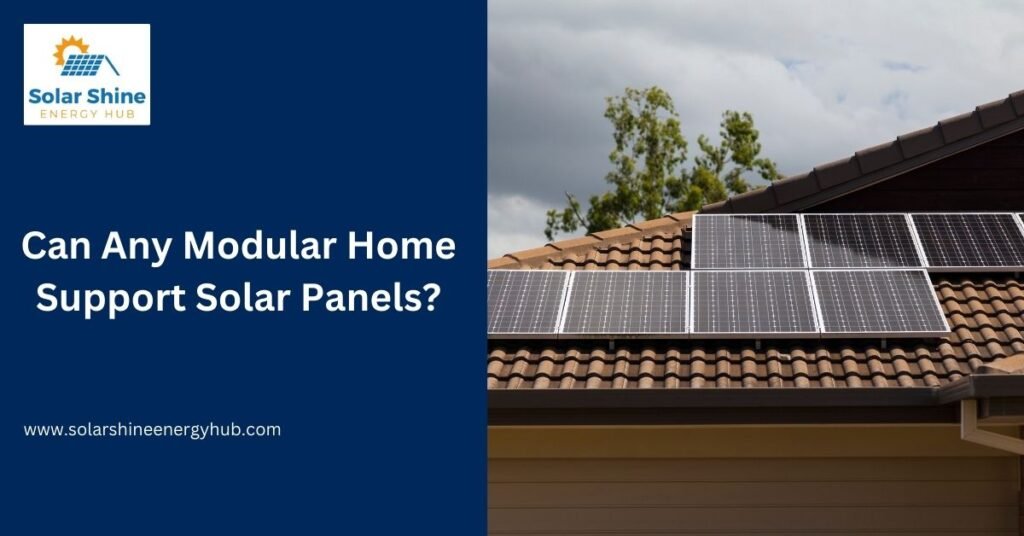
- The structural integrity of a modular home is no different than a traditional site-built home, making it suitable for solar panel installation. The house design and roof structure, however, play an important role in the practicality of the installation.
- Most modular homes are constructed with materials that can withstand the weight and installation process of solar panels, but it’s crucial to assess this before proceeding.
- Look into the orientation of the home, as the solar panels need to face in an optimal direction (typically south in the Northern Hemisphere) to maximize sun exposure.
- Consider the size and space available on the roof for solar panels. Larger roofs can accommodate more panels, increasing the amount of solar energy generated.
- Before installation, homeowners should check local building regulations and codes. Some areas may require specific permits or have restrictions on solar panel installations.
- Finally, homeowners should consider the age and condition of the roof. It might be more cost-effective to replace an older roof before installing solar panels to avoid future disruptions.
How Cost-Effective is Solar Power for Modular Homes?
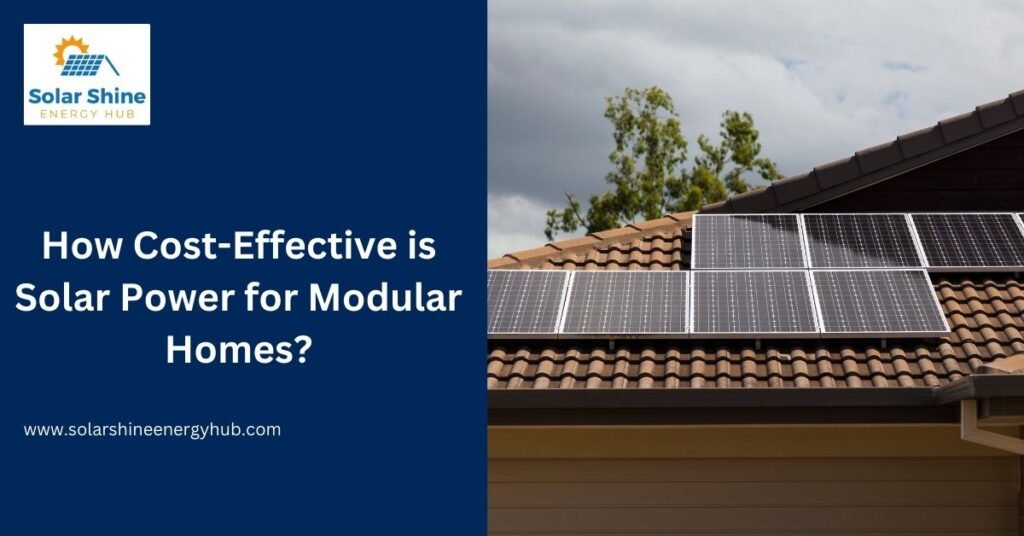
- Solar panels are a cost-effective addition to modular homes due to their ability to generate renewable energy, which can significantly reduce electricity bills. Over time, the savings from reduced energy costs can surpass the initial investment in the solar panel system.
- Government incentives, grants, and tax breaks for solar installations can further offset the initial costs, making solar power even more affordable for modular homeowners. It’s essential to research and apply for these incentives to maximize savings.
- The energy production from solar panels can be stored in batteries for later use, ensuring consistent power supply even during non-sunny days. This energy independence can help avoid the rising costs of utility electricity.
- With the increasing efficiency of solar panels, homeowners may even generate excess energy that can be fed back into the grid. In many regions, power companies pay or give credit for this excess power, creating another potential income source.
- The installation of solar panels often results in increased property value due to the desire for energy-efficient homes. This can be a substantial financial benefit if you decide to sell your modular home in the future.
- While there are upfront costs associated with installing solar panels, the long-term benefits, savings, and potential earnings make solar power a cost-effective solution for modular homes.
What are the Challenges of Solar Installation?
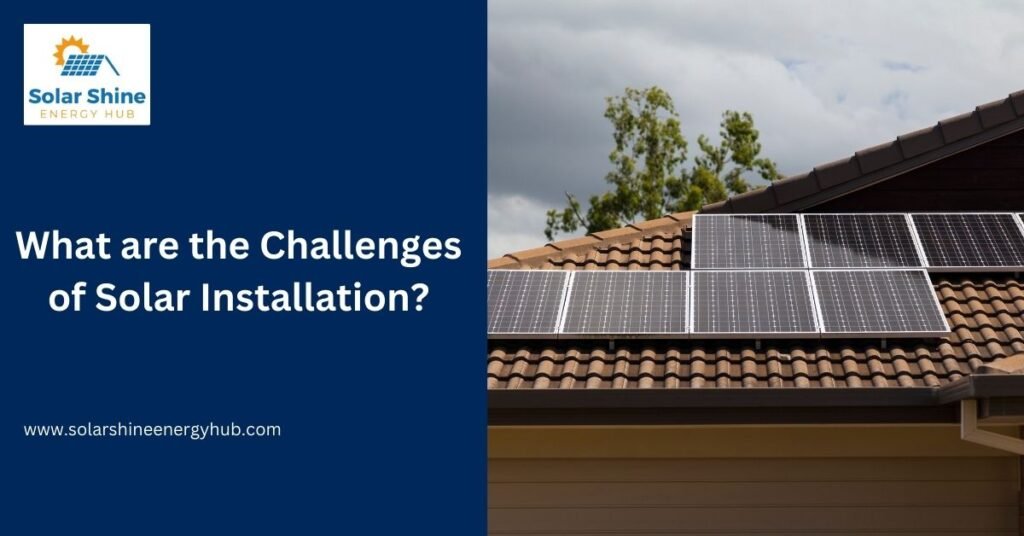
- The installation itself can be complex and requires professional expertise to ensure optimal performance and safety. This complexity could also add to the initial cost of setting up the solar power system.
- The geographical location of the home plays a crucial role in the efficacy of solar panels. Areas with less sunshine or prolonged periods of cloudy weather may not reap the maximum benefits of solar power.
- There might be initial resistance or lack of support from local communities or homeowners associations for the installation of solar panels.
- The process of connecting the solar installation to the power grid can be complicated and may require cooperation from local utility companies. This could potentially lead to delays in the project.
- Maintaining and cleaning the solar panels is an ongoing task, and homeowners must be ready to invest time and effort into this to maintain the efficiency of the panels.
- The fast-paced advancements in solar technology could render existing solar installations obsolete or less efficient in the future, requiring potential upgrades or replacements.
Is Professional Installation Required for Solar Panels?
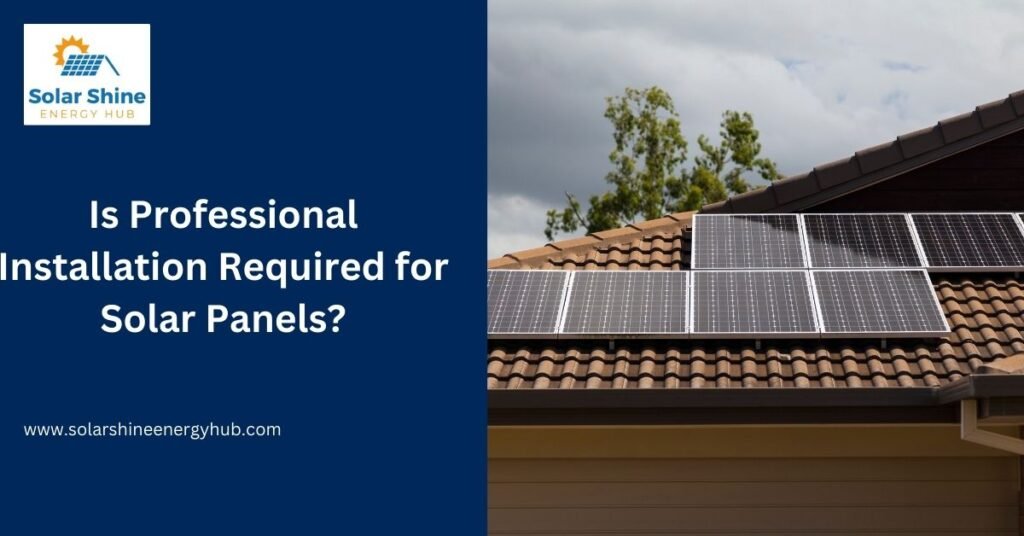
- Professional installation of solar panels is strongly recommended due to the technical knowledge required for proper setup and optimal functioning. This ensures that the panels are correctly connected, securely mounted, and properly oriented for maximum sun exposure.
- Hiring trained professionals can also help avoid potential damage to the roof or the panels themselves during the installation process. They will have the necessary tools and experience to carry out the task efficiently.
- A professional installer is well-versed with local regulations and permit requirements, ensuring the installation complies with all local and national codes. This can help avoid legal complications down the line.
- Solar panel installers can effectively integrate the panels with the home’s existing electrical system, ensuring safety standards are maintained and the system functions optimally.
- Professionals can also guide the ideal type and number of panels to install based on the homeowner’s energy needs and roof space. They can help make the most out of the investment.
- Lastly, most professional services offer warranties and maintenance support, which can provide homeowners with peace of mind knowing that any future issues would be addressed by the company.
Does Solar Energy Increase Modular Home Value?
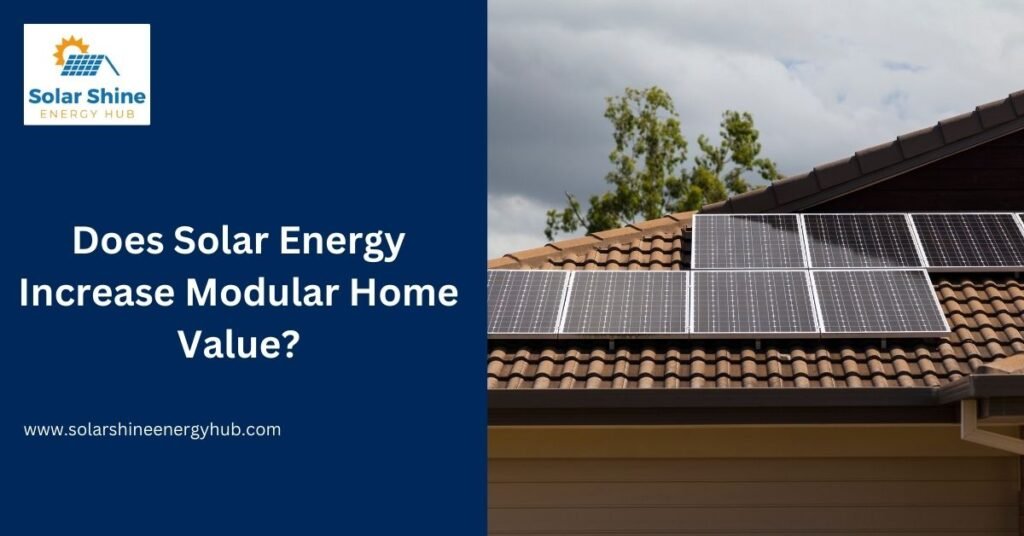
- Solar energy is a highly sought-after feature for many home buyers, particularly those interested in sustainability and reducing carbon footprints. The installation of solar panels often leads to an increase in the value of modular homes.
- Properties with solar installations tend to sell faster compared to those without. The lower energy costs and long-term savings make them an attractive prospect for potential buyers.
- The addition of a solar system signifies that the home is modern and updated, which can be a strong selling point. This is particularly true in areas where renewable energy is highly promoted.
- Solar installations can transform a home into a source of income if excess energy produced is sold back to the grid. This potential income source can increase the perceived value of the property.
- A solar-equipped modular home is proof of the homeowner’s commitment to sustainability and renewable energy. This can attract like-minded buyers and thus increase the home’s market value.
- The increase in value is not just monetary, but also in terms of comfort and independence. Homes equipped with solar power systems are less dependent on the grid, providing homeowners with energy security and reliability.
Conclusion
In sum, solar energy presents a sustainable and cost-effective solution for powering modular homes. Despite initial costs and challenges, the long-term benefits significantly outpace these concerns. The potential for energy independence, reductions in utility bills, and an increase in property value make this an investment worth considering. With professional installation, homeowners can capitalize on this green energy solution to foster a more sustainable future.